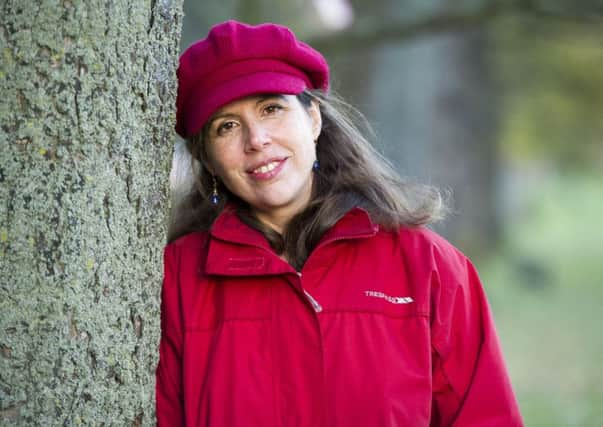Campaign to end '˜stigma' of lung cancer patients


Karen Macrae, who works for NHS Lothian, said the perception was that people with the disease had brought it upon themselves and this has made it difficult to compete for funding with more high-profile forms of cancer.
Macrae was speaking as an international survey by the Global Lung Cancer Coalition revealed one quarter of people in the UK have less sympathy for people with the illness than those with other forms of the disease.
Advertisement
Hide AdAdvertisement
Hide AdLung cancer is the most common cancer in Scotland. It is also a disease with a particularly poor prognosis, with fewer than 10 per cent of patients in Scotland surviving longer than five years from diagnosis.


Macrae said the illness was so closely associated with smoking that people automatically assumed the patients had brought it upon themselves.
She said: “If someone told you they had lung cancer, what would be your first thought?
“Most people would say ‘smoker’ but there’s an increase in patients who present with lung cancer who are not smokers.
“Around 10-15 per cent of non-smokers are now getting lung cancer, so it’s not just a smoker’s disease.


“In terms of the stigma that’s attached to it, the patient’s attitude can be ‘Oh well, I smoked, so it’s my own fault’ but I think it’s about trying to get them past that and to realise that it’s not just a smoker’s disease.
“The issue with lung cancer is that when the patient actually presents, most have got stage 4 disease and it’s not curative by that point.
“Lung cancer is absolutely rubbish, because it takes such a long time for any signs of symptoms to present themselves.
Advertisement
Hide AdAdvertisement
Hide Ad“If you went to your doctor and said you felt tired they wouldn’t automatically think you’ve got lung cancer. If you went to your GP saying ‘I’ve lost weight and I keep having chest infections’ they’d maybe think you were run down. So it’s a very difficult thing to diagnose.
“Which is possibly why patients put off going to the doctor, and when they do go, they potentially have a stage 4 disease.”
The clinical nursing specialist said lung cancer struggled to get the funding more “glamorous” types of cancer received that did not have any kind of stigma attached.
“I think that’s where the issue comes with lung cancer because it’s predisposed as a smoker’s illness, so people tend not to support it and back it in the same way.
“Ideally we would love it to be on the same par as breast cancer, as prostate cancer – all these kind of things.
“It would be good to get as high a cure rate as these cancers do but it’s a difficult one to diagnose, it’s a difficult one for people to present because it’s not a lump or a sore bit. It’s non-specific things that people would go along to their GP with.”
The Roy Castle Lung Cancer Foundation, set up in 1990 by the popular TV presenter who was struck down with the illness despite having never smoked, has launched a month-long #HeadHigh campaign this month to reduce the stigma and reveal the real face of lung cancer.
‘My diagnosis is probably as a result of diesel cars’
Joanna Marshall was diagnosed with late-stage lung cancer in March 2015, despite never having smoked a cigarette.
Advertisement
Hide AdAdvertisement
Hide AdThe mother-of-two, aged 39, went to the doctors with a bad cold that wouldn’t budge. At that point lung cancer was the furthest thing from her mind.
Doctors discovered a tumour in her right lung which had already spread to her lymph nodes.
She spoke about the stigma attached to lung cancer with regard to it being perceived as an illness predominantly associated with smokers.
She said: “Obviously I don’t want my children to be at increased risk of motherlessness just because people are judged because they smoked when they were younger.
“It shouldn’t mean I should get less good treatment because of that, and it shouldn’t mean people who smoked get less good treatment.
“No-one deserves to get lung cancer. It kills more people than other cancers so it should mean they have something proportionate to the risk to the public but the stigma gets in the way.
“My diagnosis is probably as a result of diesel cars. Nobody can say for certain but it’s much more likely to be an environmental cause like diesel cars than anything else.”
Joanna said she would welcome more research into environmental factors contributing to lung cancer.
Advertisement
Hide AdAdvertisement
Hide AdShe added: “I think the Scottish Government could do an awful lot more to improve their policy.
“Air pollution is something that should be addressed just as much as smoking prevention or any of the other causes of cancer.
“We need to stop just attributing it to behaviour – it isn’t just that.”